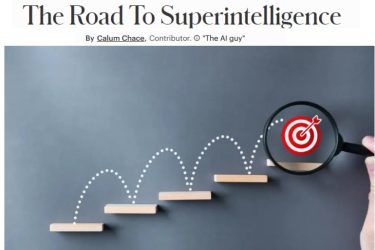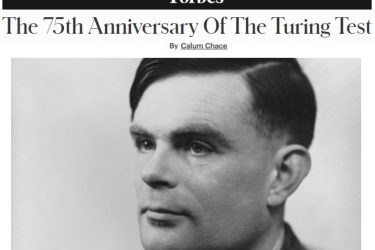Workaholics
Becoming a workaholic seems to be an occupational hazard among longevity researchers and advocates. A few weeks ago, Eva Bischof was involved in a serious accident, which gave her concussion, and badly injured her arm. Despite being a highly qualified doctor, the therapy she prescribed for herself was not bed rest – but work.
You probably have to be a workaholic to secure the qualifications and the professional appointments on Bischof’s CV. Especially if you come from humble origins: Bischof is the daughter of a tailor and an accountant’s assistant, and she spent her summers in her grandparents’ village, in a house with no toilets, and no running water.
Despite this, she trained as a doctor in Germany, then at Harvard and Columbia, and she has practised at the top institutions in Zurich, Basel, and Shanghai, where she is also an associate professor, engaged in lecturing and research. In addition, she is a medical adviser at four prominent and intriguing longevity organisations, although she emphasises that she spends less than half her time on these engagements: “I can’t survive without my clinical work.”
China
While working as a physician at the University Hospital in Basel, Bischof was awarded a grant to study cancer in China, and during this time she began to focus on longevity medicine. She is enormously impressed by the appreciation for innovation and progress that she experiences in China, and by the country’s ambition to lead the world in various categories of technology, including healthcare.
Bischof’s first medical adviser role is at Insilico Medicine, a Hong Kong-based company which uses artificial intelligence (AI) to develop drugs. She had known Alex Zhavoronkov, the founder and CEO, for several years before he invited her to join the company. Because both their schedules were so hectic, their first meeting to discuss the role took place on a Sunday at 11.30pm.
In the early 2000s, Zhavoronkov worked at a company manufacturing Graphics Processing Units (GPUs), the chips that have long powered video games, and which helped enable the deep learning revolution. This gave him an early start when the AI Big Bang took place in 2012, and deep learning enabled AI to fulfil its long-awaited promise. Bischof’s work at Insilico has given her new insights into the enormous potential of AI in healthcare, and her work there includes improving the use of biomarkers to help patients optimise their physical condition. Biomarkers can be anything that measures the condition of a living organism, and they are crucial to the emerging science of longevity because you cannot demonstrate the effectiveness of a therapy if you cannot measure it.
Challenges to longevity research
There is tremendous progress in the field of longevity, but many challenges remain. Two emergent ones are of particular concern. First, the reputation of the field, and hence its progress, is undermined by the proliferation of commercially-driven pseudo-longevity supplements and therapies which are expensive placebos at best, and can sometimes cause serious harm.
Second, extraordinary claims require extraordinary proof. There is plenty of solid and rigorous research going on, much of it presented at the annual Aging Research and Drug Discovery meeting (ARDD), at which Bischof co-organised the first Longevity Medicine Workshop this year. Randomised controlled trials are the gold standard for research, but they are time-intensive, and would require aging to be acknowledged as a disease in its own right, not simply an unfortunate part of the human condition. Compounding the problem is the fact that the field is evolving so fast that it is hard for even the most committed clinical practitioner to keep up with the basic science progress.
Alex Zhavoronkov says that longevity science can only proceed at the pace which medical practitioners allow it to. This is why Bischof is working with him and other scientists and physicians to train as many medics as possible, developing a range of free courses accredited for continual medical education, ranging from a few hours up to degree level.
https://www.longevity-medicine.org/
https://longevity-degree.teachable.com/
Not a transhumanist
Bischof’s hopes and ambitions for longevity medicine are more cautious than those of some of its evangelists. “Maybe it’s because I’m German, but I have no unrealistic end goals. I’m primarily a physician, not a transhumanist.” (Transhumanists believe that we should be free to augment ourselves physically and cognitively with new technologies as they become available, and they are usually optimistic about what will be possible in the coming decades.) “My ambition is simply for my patients – and indeed everyone – to enjoy a healthy lifespan, maintaining a high quality of life with optimal performance until they die, and detecting risk of diseases decades before they occur.”
Bischof’s second advisory position is at Maximon, a Swiss company which provides venture capital and other support for a growing number of longevity research startups. The third is Holmusk, a company founded in 2015 to capture, curate, and organise data on mental health, which is the most complex and most difficult aspect of health care. They already have the world’s largest data set on neuro-degenerative health, and among other things, they are developing algorithms to predict the progression of dementia from mild to acute, and to predict the efficacy of new drugs.
The fourth advisory position is at the newest organisation, and also the most ambitious. At the end of September 2021 the Longevity Science Foundation was launched in Switzerland. Over the next ten years it aims to distribute $1 billion to groups researching ways to extend healthy lifespans beyond 120. Bischof is chairman of the Foundation’s advisory board, working with a number of leading figures in the community. The Foundation will support fundamental research which will not bear fruit for decades, but its primary aim is to fund work which will extend lives within five years. It will require neither equity nor a share of IP from the groups it supports.
In addition to these advisory roles, Bischof is also a concierge longevity physician at Human Longevity Inc (HLI), a company based in San Diego and Beijing which was established in 2013 by Craig Venter, the first person to sequence the human genome, and Peter Diamandis, a wealthy transhumanist, entrepreneur and author. HLI offers a precision diagnostic service at the Health Nucleus, which is acknowledged as one of the most comprehensive such services in the world. HLI’s progress has not always been smooth, with the Wall Street Journal reporting an 80% drop in value in 2018 that led to half the staff leaving, but that was two years before Bischof signed up. More recently, the company has published peer-reviewed articles demonstrating that it has saved the lives of many of its clients by surfacing early-stage cancers and other problems in time for them to be fixed before symptoms emerged.
Bischof says the really valuable part of the company is its large and expanding AI and scientific expertise, and she expects this to enable the company to fulfil its goal of democratising the offer of precision diagnostic and concierge healthcare. HLI is currently opening new centres in San Francisco and Beijing. It plans to expand rapidly to cover every major Chinese city, and then, gradually, to roll out globally.
Adding life to our years
Bischof’s forecasts for 2035 and 2050 reflect her cautious pragmatism. Her hope for 2035 is that longevity medicine will have made some progress towards being implemented in the national health systems of many countries. For 2050, she hopes that a publication in a top peer-reviewed journal – ideally co-written by herself – will provide conclusive evidence that the majority of people can live optimally healthy lives up to 100 and maybe a little beyond. By “optimally healthy”, she means (to paraphrase the pioneering epidemiologist Professor Paffenberger) not just adding years to our lives, but adding life to our years.



